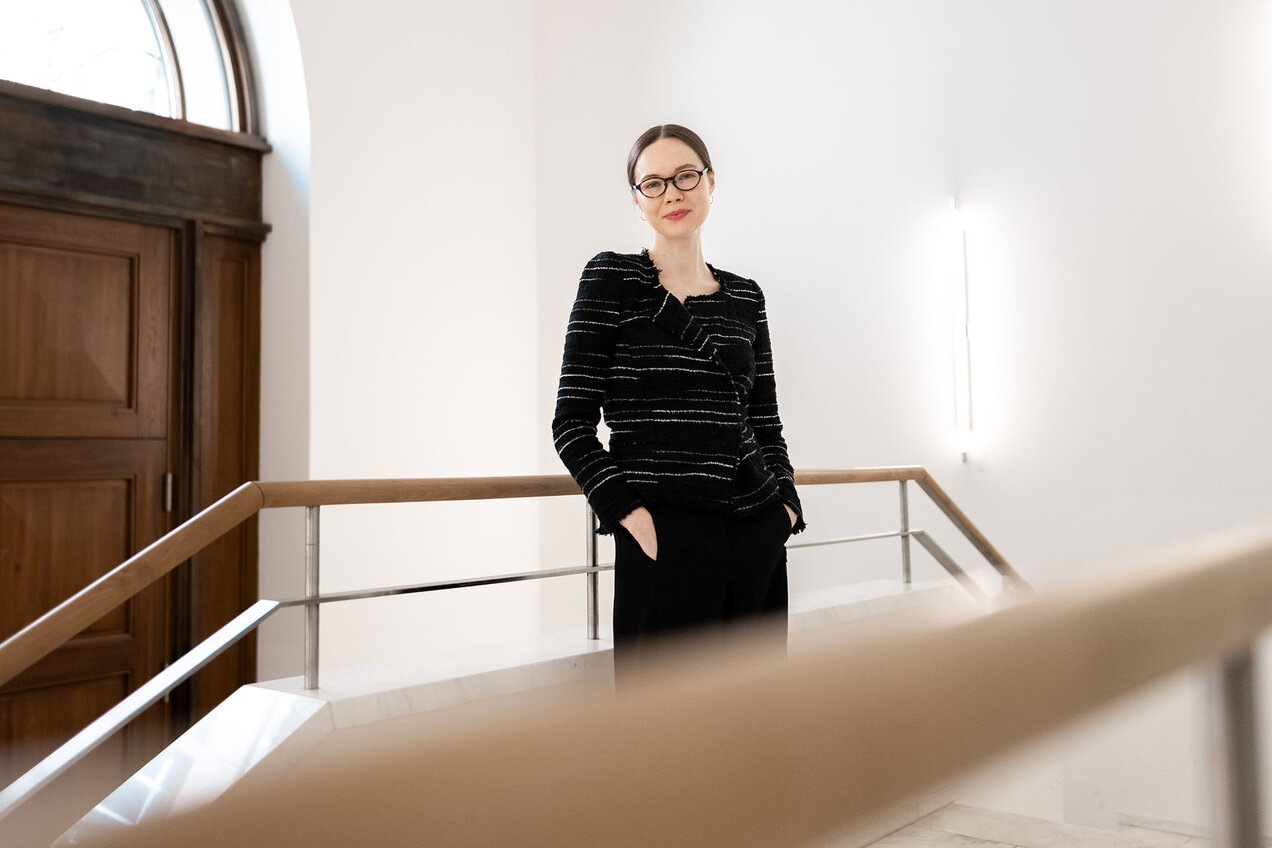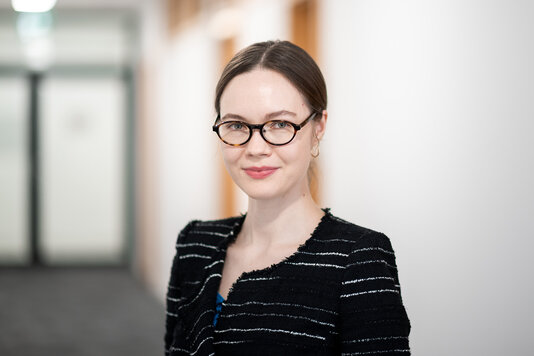
Interview with Elena Beregow
 ©
UDE / Fabian Strauch
©
UDE / Fabian Strauch
People sweat – but who sweats under what circumstances is primarily a question of social conditions. Sociologist Elena Beregow investigates the relationship between temperature and society, particularly in the context of the climate crisis. As newly appointed junior professor, she will establish the research group ‘Sweat – Sociology of Transpiration in the Age of Global Warming’. In this interview, she explains which research questions she will pursue specifically and what makes it interesting for her to work at the College of the University Alliance Ruhr.
For the last five years, I worked at the University of the Bundeswehr in Munich. An important focus of my research is the relationship between temperature and society. In my dissertation, I explored thermal figures in sociological thinking, especially the three figures of fire, machine and fermentation. This interest is now increasingly shifting to empirical phenomena in the face of the climate crisis. A second major – more cultural-sociological – field of interest comprises writing styles, pop aesthetics and atmospheres.
Due to my interest in cultural and aesthetic issues, collaboration with cultural, literary and media studies is obvious. As co-editor of the journal Pop. Kultur und Kritik, I regularly work with colleagues from the humanities in the research field of pop culture and contemporary pop aesthetics. In doing so, I repeatedly notice that my way of thinking strongly aligns with these disciplinary cultures. For the comparatively new field of ‘Critical Temperature Studies’, exchange with researchers from anthropology, media studies and history, among others, was and is important.
"From a sociological perspective, heat exacerbates social inequalities: due to unequal access and differing vulnerabilities, it hits certain groups disproportionately hard."
A central research question is how our modern ideal of coolness and distance is shifting in the light of ever more frequent and intense heat waves. While new technological (and increasingly also digital) cooling infrastructures promise solutions, I aim to investigate the new tensions and problems arising from this development by focusing on the phenomenon of sweating. From a sociological perspective, heat exacerbates social inequalities: due to unequal access and differing vulnerabilities, it hits certain groups disproportionately hard. Historically, the sweating body in particular is also linked to racist discourses, to gender concepts and to physical labour. I want to understand how the production of social differences in and through heat is represented and transformed in the face of the climate crisis. At the same time, sweating is undergoing a revaluation in wellness and sports cultures, where it is linked to discourses of optimisation and health, and in pop culture, where it stands for protest and transgression. The research group will explore these ambivalent meanings – drawing on historical, sociological-theoretical, ethnographic and discourse-analytical approaches.
The University Alliance Ruhr offers a great opportunity to cooperate with colleagues from other institutes and disciplines beyond traditional faculty boundaries. For example, I'm really looking forward to teaching at the Department of Social Sciences at TU Dortmund University and the dialogue there. But I also strongly appreciate the encouragement to approach other disciplinary cultures. Here you get completely different perspectives on the research topic than from your own discipline – which ideally also applies vice versa. What particularly appeals to me about the College is the principle of thematic openness and the structure of “permanent” professorships and changing international fellows. This allows you to work in a focussed way within the research group and at the same time you can stay in contact with very different other scholars.
Specifically, I would like to collaborate with the Media Studies at Ruhr University Bochum, where I see a great deal of shared interest in (thermal) media ecologies or (digital) cultural and body technologies. Moreover, the section Cultural Anthropology of Textiles at TU Dortmund University, which investigates fashion and vestimentary cultures, is unique in Germany. Work and sports textiles are central aspects for my research group. For research into the scientific history of sweating, I would like to approach the Historical Institute at the University of Duisburg-Essen, where there is extensive expertise on the social history of sport and industrial labour, but also on urban history and modernity. And finally, the Institute for Advanced Study in the Humanities (KWI) in Essen is certainly an important anchor point for collaboration, where an ERC-funded project on the cultures of cooling is currently in progress.
I would like to continue my contact with the Heat Lab at the University of California in Los Angeles (UCLA), whose focus is on thermal inequalities, especially in urban areas, as well as with the Centre for the Social Study of Microbes in Helsinki. When it comes to heat, it also seems important to me to include perspectives from the Global South – be it for field research visits and dialogue with local actors or for international workshops and conferences of our research group.
 ©
© UDE / Fabian Strauch
©
© UDE / Fabian Strauch
Prof. Elena Beregow
Junior Professor | Research Group 'Sweat - Sociology of Transpiration in the Age of Global Warming'
Phone: +49 201 183 65 66
E-mail: elena.beregow@college-uaruhr.de
Elena Beregow studied sociology in Göttingen, Hamburg, and Copenhagen and completed her PhD at the University of Hamburg with a dissertation on thermal figures in social theory, focusing on fermentation as both a sociological concept and a material practice. From 2020 to 2025 she was a postdoctoral researcher at the University of the Bundeswehr Munich. Her research is situated at the intersection of sociological theory and cultural sociology, with a particular interest in the sociology of the senses, metaphors, microbes, and the social dimensions of temperature. She also explores sociological writing and theorising, as well as pop culture, affects, and atmospheres.